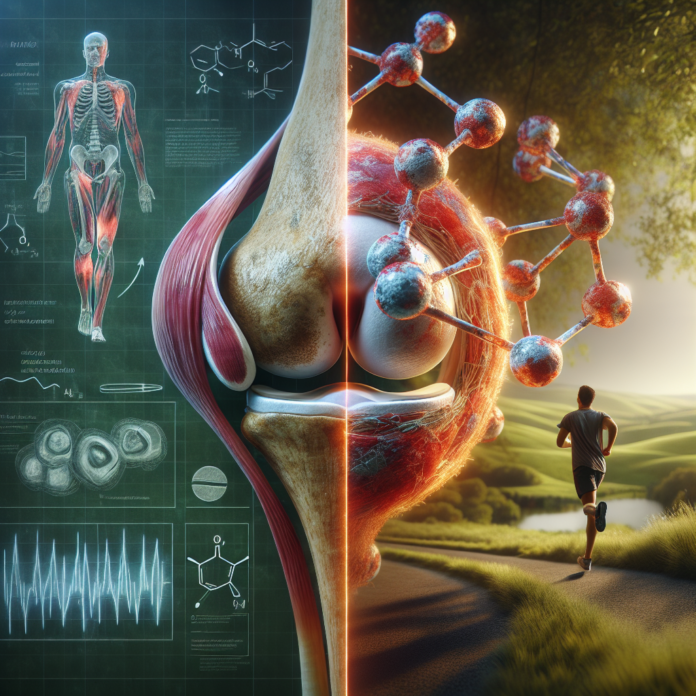In the realm of injury recovery and pain management, peptides like BPC 157 have sparked considerable interest, particularly for those suffering from chronic knee pain following an ACL injury. Dr. David Guyer, an esteemed orthopedic surgeon and expert in sports medicine and regenerative therapies, dives into the potential benefits and limitations of this intriguing compound. Despite its reputation as a promising solution for musculoskeletal injuries, BPC 157 remains classified as experimental by the FDA. In this blog, we delve into the science behind BPC 157, explore anecdotal evidence of its effectiveness, and discuss its place in the wider landscape of knee pain treatments. Whether you’re considering new approaches to managing knee pain or simply curious about the potential of peptides, Dr. Guyer offers insights to help guide your decisions.
The Role of BPC 157 in Recovery
When it comes to addressing chronic knee pain that persists years after an ACL injury and surgery, it is crucial to consider every possible avenue that might provide relief and improve quality of life. Peptides like BPC 157 have emerged in discussions as potential therapeutic agents due to their ability to promote healing and regeneration within the body. However, it’s essential to understand both the scientific basis and experimental status of such treatments before making informed decisions.
BPC 157 is a synthetic peptide that mimics a compound found naturally in the body, specifically in the stomach lining. Its primary allure comes from its reported ability to facilitate the healing of muscles, tendons, and ligaments—an enticing prospect for those suffering from musculoskeletal injuries. The peptide is commonly administered through daily subcutaneous injections, although some forms are available in capsules, albeit possibly less effective for orthopedic purposes.
Addressing Long-Term Effects of ACL Injury
The chronic knee pain that often follows an ACL tear, despite surgical intervention, is frequently exacerbated by the development of osteoarthritis—a known consequence of such injuries. Although surgery can mitigate some risk, it does not entirely prevent the long-term degeneration associated with the injury. In this context, the potential regenerative effects of BPC 157 hold significant interest.
Research and Efficacy
One study that sought to evaluate this potential involved 16 patients with knee pain who received BPC 157 injections. While some patients were also administered TB4 (Thymosin Beta-4), the study had notable limitations, including the absence of a control group and lack of blinding. No diagnostic imaging was conducted prior to treatment, so the exact nature of the participants’ knee issues—whether arthritis, meniscus damage, or another condition—remains unclear. Despite these methodological issues, a significant number of participants reported pain improvement, suggesting that BPC 157 may offer some benefit to those with chronic knee pain.
Mechanisms of Action
The question of how BPC 157 works continues to intrigue researchers. It is believed that the peptide can enhance blood vessel growth, reduce inflammation, and protect tissues from damage—all of which are crucial for recovery and repair processes in the body. There is some evidence, albeit limited, that BPC 157 might also play a role in regenerating joint cartilage and subchondral bone. However, these conclusions are primarily drawn from animal studies, and more rigorous human trials are needed to substantiate these claims definitively.
Considerations for Treatment
For those considering BPC 157 as a treatment option, it’s important to weigh the benefits against the inherent uncertainties. The peptide is deemed experimental by the FDA, meaning it has not yet undergone the extensive clinical testing required for full approval. Therefore, discussions with a healthcare provider are essential to determine if this treatment aligns with your specific needs and medical history.
There are several factors to consider before proceeding with BPC 157 treatment:
- Type and Severity of Injury: Consult with a healthcare provider to determine whether your chronic knee pain is primarily due to ligament damage, arthritis, or another condition.
- Administration Method: The efficacy of BPC 157 may differ based on whether it is injected versus taken orally.
- Combination Therapy: Consider whether BPC 157 might be more effective when used alongside other treatments, such as physical therapy or other regenerative therapies like stem cell injections.
- Availability of Providers: Ensure that any treatment with BPC 157 is administered by a qualified healthcare professional, and discuss the potential risks and benefits thoroughly.
While BPC 157 holds promise, it is crucial to remain informed about other treatment options available for chronic knee pain. These may include conventional approaches such as physical therapy, pain management strategies, or surgical interventions, as well as emerging therapies like stem cells or exosomes, which may offer more substantial effects for conditions like osteoarthritis.
Conclusion
In conclusion, the potential of BPC 157 as a treatment for chronic knee pain following ACL injuries remains an area ripe for exploration. As researchers continue to investigate its effects, patients are encouraged to maintain open dialogues with their healthcare providers to explore all available options and make decisions grounded in the best available evidence. Peptides may offer a hopeful path forward, but like all treatments, they come with their own set of complexities and considerations.
